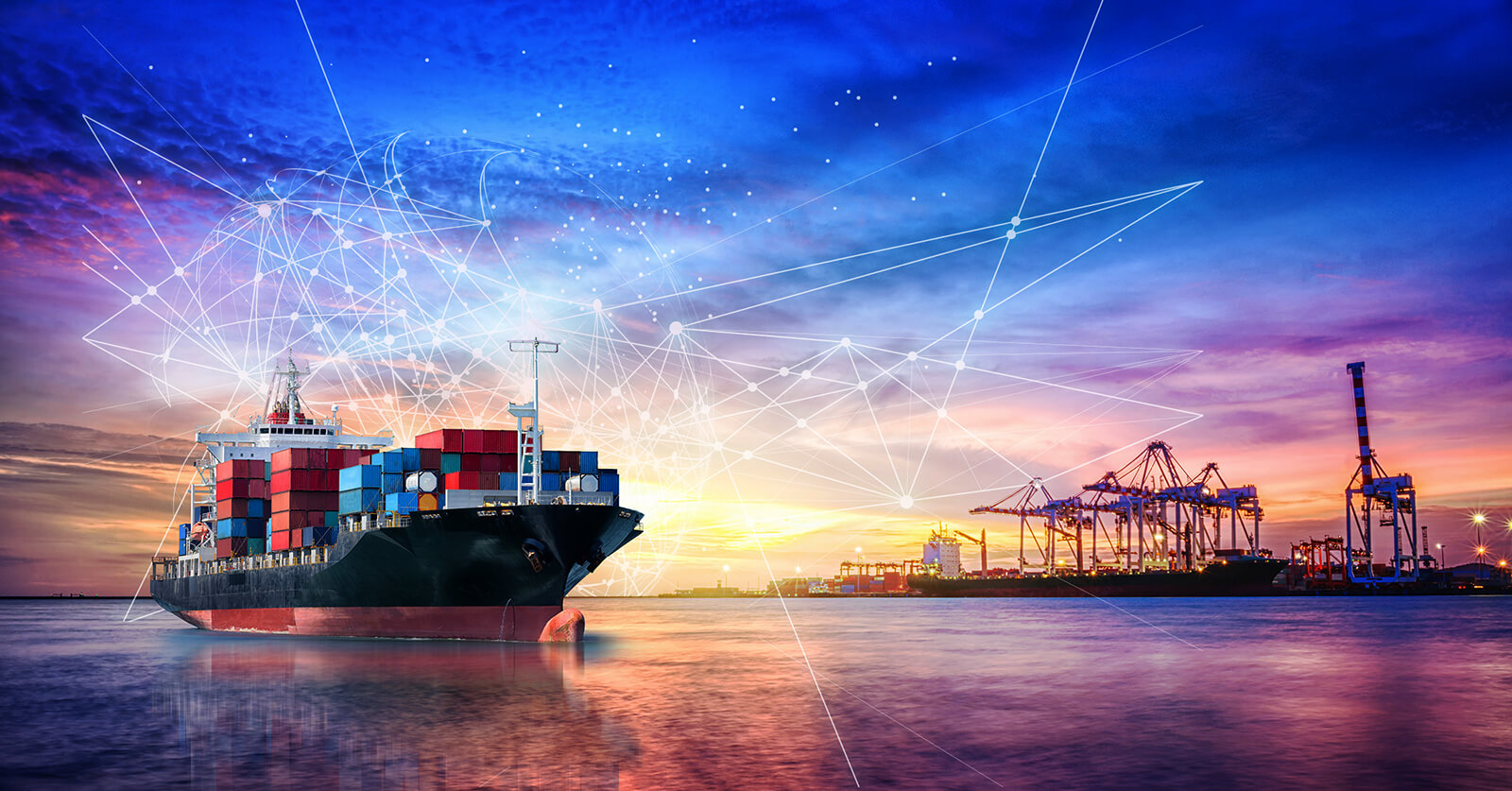
From soap to cereals, coal to iron ore, the shipping industry transports many of the raw materials and finished goods we take for granted each day. And while the industry may be an unsung hero of helping to provide for our everyday needs, marine transportation continues to be faced with a range of challenges to efficiently deliver – challenges that could be addressed with blockchain.
The marine industry has to cope with dynamic market conditions and complex processes to operate. Changing shipping market cycle trends, industrial shipping demand changes, and the effects of international trade agreements influence business strategies. These trends are set against cargo handling and fuel cost increases, workforce shortages, and tightened environmental regulations and emissions compliance that affect daily working decisions.
However, in an environment of operational uncertainty, the marine industry is continuing to grow. According to ABI Research,“Global maritime freight transportation revenue is expected to grow from $166 billion last year to over $205 billion in 2022.”
To effectively move forward, the industry is beginning to explore applying digital technologies to shipping logistics as an opportunity to streamline methods, create smarter ships and fleets, and better prepare to capitalize on global growth.
Simplifying with Blockchain
Not unlike other industrial organizations, the marine industry uses long and complex paper-based systems to handle maritime transactions, including supply chain and procurement operations. Bills of lading, contracts, letters of credit, and charter agreements are just a few of the documents that must be generated, tracked, handled, and processed promptly among numerous parties.
The shipping industry is not unique. Supply chains are complex because every party in each transaction wants assurance that quality goods will be received, and payment will be made. Until now, no foolproof way has been devised to ensure the process can be implemented without error.
The blockchain is one of the digital technologies expected to change this traditionally stubborn dynamic for the shipping world.
As reported in Information Age, Jody Cleworth, CEO of Marine Transport International, stated “The blockchain has proven to be an excellent way of connecting the different parties involved in any supply chain environment due to the transparency and security-by-design of the technology. … The business case for connecting supply chains using blockchain is very strong.”
In the Bloomberg article titled Blockchain is About to Revolutionize the Shipping Industry, Rahul Kapoor states, “[Blockchain] would be the biggest innovation in the industry since containerization. It basically brings more transparency and efficiency.”
Steering Ahead with SyncFab
As the first supply chain of its kind, SyncFab Smart Manufacturing Blockchain is a solution that could be effectively utilized in the marine industry for a range of current supply chain challenges.
From the procurement of precision equipment, such as navigation and sensor technologies, to marine bunkering flowmeter measurement systems, SyncFab streamlines the supply chain process for domestic shipping companies and parts suppliers. Using the SyncFab platform and manufacturing network, maritime buyers can leverage the inherent blockchain benefits of simplicity, transparency, speed, and security for great operational advantage.
SyncFab Smart Manufacturing Blockchainis the first, peer-to-peer blockchain network for manufacturers to compete and differentiate through an improved supply chain and procurement process.
Smart Manufacturing Blockchain is an easy-to-use, objective, and secure platform that delivers immediate trust among manufacturers and suppliers to do business. Learn more about blockchain can transform any industrial supply chain, ahead of the competition.
Originally Published Here: https://blog.syncfab.com/transforming-maritime-supply-chains-with-blockchain/



